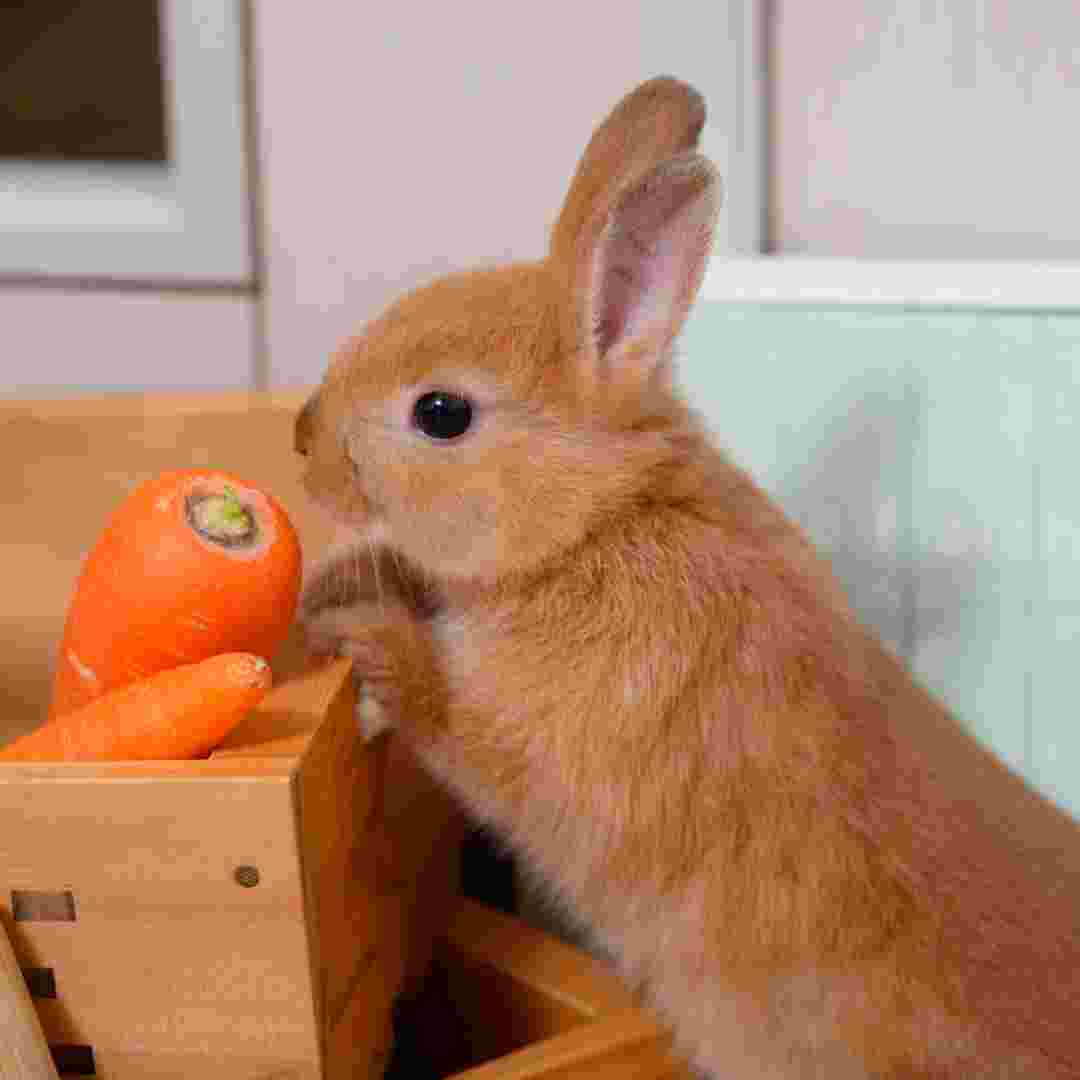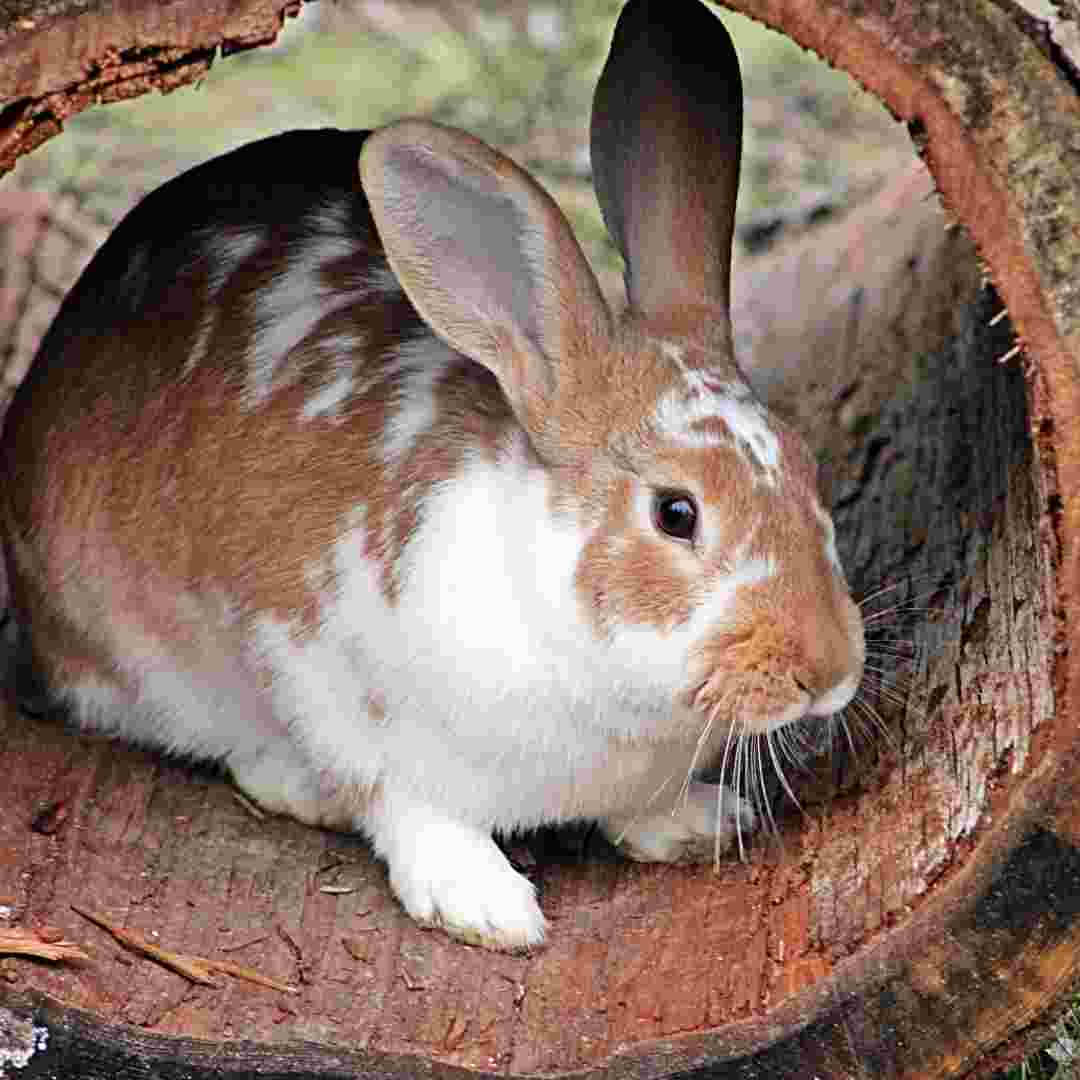Contents Table
Introduction
Rabbit Pellet Ingredients: What Are They?
The Nutrient Benefits of Feeding Rabbit Pellets
What are the differences in rabbit pellets?
Is Feeding Your Rabbit Pellets Right?
Finding the Best Rabbit Pellets: What to Look for and Avoid?
Q&A
Conclusion
Introduction
Rabbit pellets are rabbit-specific feed. They contain hay, cereals, vegetables, and other plant-based foods. Feeding your rabbit pellets is easy and nutritious. They offer a complete rabbit-specific diet. Rabbit pellets provide your rabbit with enough nutrition to keep healthy and happy.
Rabbit Pellet Ingredients: What Are They?
Pet rabbits are fed pellets. They are a simple and affordable way to feed your rabbit healthful nutrition. But what are rabbit pellets comprised of?
Hay, grains, veggies, vitamins, and minerals make up rabbit pellets. Hay is the main element in most rabbit pellets, providing fibre and supporting the digestive tract. The blend contains carbohydrates and protein from oats, barley, and wheat. Carrots, peas and lucerne add vitamins and minerals. Finally, vitamins and minerals are added to ensure your rabbit gets enough nourishment.
Some manufacturers add herbs, fruits, and nuts. These components offer flavour and nutrients to rabbit food. The pellets you buy should not contain substances that could hurt your rabbit, so read the label.
Rabbit pellets are convenient and affordable for rabbit nourishment. You can provide your rabbit the greatest nourishment by studying rabbit pellet ingredients.
The Nutrient Benefits of Feeding Rabbit Pellets
Rabbit pellets give necessary nutrients for your pet. Rabbit pellets provide total nutrition with proteins, carbs, lipids, vitamins, and minerals. They are easy to keep and measure, making rabbit feeding easy.
Rabbits need protein, and pellets offer it. Protein supports muscular growth, skin, and hair. Your rabbit gets energy from pellets' carbs. Fats in pellets provide energy and keep your rabbit's coat bright and healthy.
Your rabbit needs vitamins and minerals, and pellets supply them. Eye, bone, and skin health depend on vitamins A, D, and E. Minerals like calcium, phosphorus, and magnesium strengthen bones and teeth.
Pellets assist your rabbit stay healthy and provide critical nutrients. Pellets are low in calories and high in fibre, keeping your rabbit satiated.
Feeding rabbit pellets is an excellent way to give them critical nutrition. Pellets give a balanced diet of proteins, carbs, fats, vitamins, and minerals and help maintain weight.
What are the differences in rabbit pellets?
Pet rabbits are fed pellets. Each form of rabbit pellet has pros and cons. Knowing the differences in rabbit pellets will help you choose the best meal for your rabbit.
Alfalfa-based rabbit pellets are most common. Young rabbits and pregnant or nursing does benefit from alfalfa-based pellets' fibre and calcium content. Alfalfa-based pellets might give adult rabbits stomach difficulties, so avoid them.
Timothy-based rabbit pellets are very popular. Timothy pellets include less fibre and calcium than lucerne pellets, making them ideal for adult rabbits. Timothy pellets are richer in protein, making them ideal for recovering rabbits.
Oat-based rabbit pellets are also growing popular. For rabbits with digestive difficulties, oat-based pellets have more fibre than alfalfa-based pellets. Oat pellets provide more protein than lucerne pellets, making them a smart alternative for rabbits who require more nutrition.
Finally, mixed-ingredient pellets exist. Mixed-ingredient pellets, made of alfalfa, timothy and oats, provide a balanced diet for rabbits. Rabbits with digestive disorders should choose mixed-ingredient pellets since they have more fibre than alfalfa-based pellets.
There are many types of rabbit pellets, each with pros and cons. Knowing the differences in rabbit pellets will help you choose the best meal for your rabbit.
Is Feeding Your Rabbit Pellets Right?
Rabbit pellets might help your pet acquire enough nutrition. Pros and downsides must be considered before making this option. So you can choose the ideal diet for your rabbit, this article will explain the pros and cons of pellet feeding.
Pros
A comprehensive and balanced diet is the main benefit of rabbit pellets. Pellets give rabbits all the nutrients they need to be healthy. They are also easy to store, making them ideal for busy pet owners. Pellets are often enriched with vitamins and minerals to assist your rabbit get enough nutrients.
Cons
High carbohydrate content is a downside of rabbit pellets. Lack of exercise can cause weight gain and other health issues in rabbits. Pellets are pricey and may not be as appealing to some rabbits. Finally, pellets might be hard to digest, so check your rabbit's stool to make sure it's okay.
In conclusion, feeding your rabbit pellets can help it acquire enough nourishment. Pros and downsides must be considered before making this option. Before choosing the best option for your pet, examine the pros and cons.
Finding the Best Rabbit Pellets: What to Look for and Avoid?
Choosing the best rabbit pellets for your pet involves several criteria. First, check for rabbit-specific pellets. High-quality rabbit pellets should have a balanced mix of vitamins, minerals, and other nutrients. Pellets should also lack artificial colours, flavours, and preservatives.
Avoid sugary, fatty, and carbohydrate-rich rabbit pellets. These components can cause rabbit obesity and other health concerns. Pellets with animal by-products are hard for rabbits to digest.
Fortified pellets with vitamins and minerals are also necessary. These can help your rabbit receive nutritious nutrients. Low-dust pellets are also crucial because rabbits might develop respiratory difficulties.
Finally, choose pellets that are fresh and mold-free. This will ensure your rabbit gets the optimum nourishment.
Take the time to evaluate these variables to provide your rabbit the greatest nutrition.

Q&A
1. What's in rabbit pellets?
Rabbit pellets contain hay, grains, and other plant-based substances. Alfalfa, oats, wheat, barley, and other grains are usually used, but manufacturers differ.
2. Are rabbit pellets healthy?
Overall, rabbit pellets are a nutritious food for rabbits. They supply rabbits with vitamins and nutrients to keep healthy and active.
3. How often should rabbits eat pellets?
Pellets and hay should be provided twice daily to rabbits. Per 5 pounds, use 1/4 cup pellets.
4. Anything unusual about feeding rabbit pellets?
It's crucial to use fresh pellets. You should also check the pellets for mould or other poisons.
5. Are there rabbit pellet alternatives?
Fresh vegetables, fruits, and hay are rabbit pellet alternatives. However, pellets are the most comprehensive and balanced food for rabbits.
Conclusion
Rabbit pellets contain hay, grains, veggies, and other plant-based foods. They are essential to rabbits' diets thanks to their balance. Rabbit pellets are a straightforward and affordable way to feed rabbits and maintain their nutrition.
